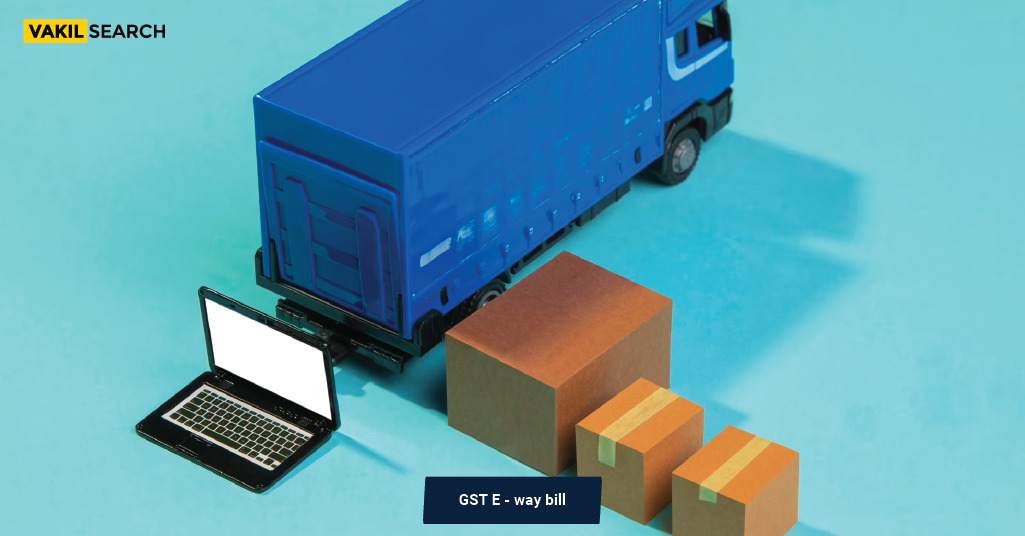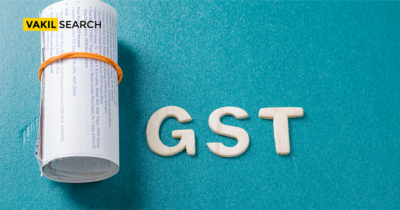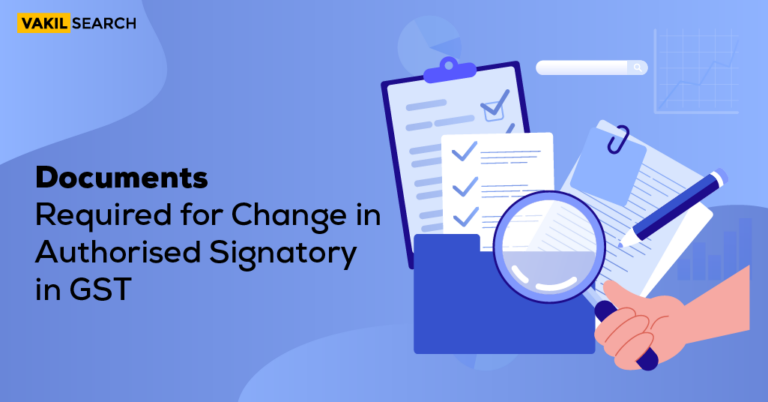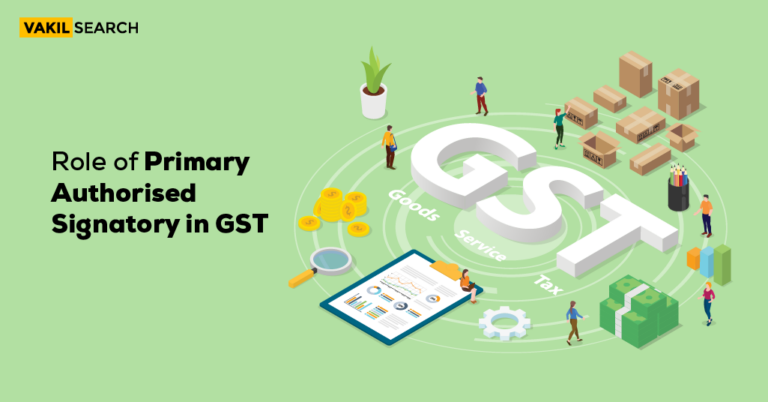In this blog, you will get accurate and complete information about the GST e-Way bill associated with the movement of goods within a state and between states and Union Territories.
What is an eWay Bill?
The E-Way Bill, which is an electronic document for the movement of goods, needs to be generated on the eWay Bill Portal. If a person is registered under the Goods and Services Tax (GST), they are not allowed to transport goods in a vehicle that has a value exceeding ₹ 50,000 (for a single invoice, bill, or delivery challan) without obtaining an e-way bill. This e-way bill must be generated on the website ewaybillgst.gov.in.
Alternatively, it is possible to generate or cancel an e-way bill using other methods such as SMS, the Android App, or by integrating through API on a site-to-site basis. To use these methods, it is essential to enter the correct GSTIN (GST Identification Number) of the parties involved. Before utilising the GSTIN, it is important to validate it using the GST search tool.
Upon generating an e-way bill, a unique E-Way Bill Number (EBN) is assigned, and this number is accessible to the supplier, recipient, and transporter involved in the transportation process.
What is the E-Way Bill Format?
The E-way bill is divided into two parts, Part A and Part B. Part A of the E-way bill gathers the necessary information about the consignment, typically the details from the invoice. The following information needs to be provided accordingly.
- GSTIN of the recipient must be provided.
- The Pin code of the delivery location must be mentioned.
- The invoice or challan number related to the supplied goods must be submitted.
- The value of the consignment needs to be specified.
- HSN Code of the transported goods should be entered. If the turnover is up to ₹ 5 crores, the first two digits of the HSN code should be mentioned. If the turnover is more than ₹ 5 crores, a four-digit HSN code is required.
- The reason for transportation should be selected from predefined options, and the most appropriate one should be chosen.
- The transport document number, which includes the goods receipt number, railway receipt number, or airway bill number, should be indicated.
What are the Penalties Associated with the E-way Bill?
In case of a consignment being detected without an e-way bill, the individual responsible would be liable to pay a penalty of ₹ 10,000 or an amount equivalent to the evaded tax, whichever is higher.
When Should eWay Bill be issued?
The eWay bill will be generated when goods are being transported in a vehicle or conveyance, and their value exceeds ₹ 50,000. This value threshold can be met either by each individual invoice or by the total value of all invoices combined within the vehicle or conveyance.
In relation to a ‘supply’
- For reasons other than a ‘supply’ (e.g., a return)
- Due to inward ‘supply’ from an unregistered person
For this purpose, a supply may be either of the following:
- A supply made for a consideration (payment) in the course of business
- A supply made for a consideration (payment) which may not be in the course of business
- A supply without consideration (without payment)
In simpler terms, the term ‘supply’ typically refers to:
- Sale: the sale of goods with a corresponding payment
- Transfer: the transfer of goods between branches or locations
- Barter/Exchange: where goods are exchanged instead of using money as payment
For all these types of movements, eWay Bills must be generated on the common portal. Additionally, certain specified Goods require mandatory generation of an eWay Bill, even if the value of the consignment is less than ₹ 50,000.
Movement of Goods from one state to another by the Principal to the Job-worker, either by the Principal or a registered Job-worker. Inter-State transportation of Handicraft goods by a dealer who is exempt from GST registration.
What is the Date of Applicability of the GST e-Way Bill in GST?
The GST e-Way Bill became applicable starting from 1 April 2018 in phases for inter-state movement of goods.
For intra-state movements of goods in Karnataka, the GST e-Way Bill has been compulsory since 1 April 2018, for Uttar Pradesh, Telangana, Kerala, Gujarat, and Andhra Pradesh from 15 April 2018, and for Uttarakhand, Tripura, Jharkhand, Himachal Pradesh, Haryana, and Bihar from 20 April 2018.
Who Should Generate an eWay Bill?
- Registered Person: Eway bill generation is mandatory for the movement of goods exceeding ₹ 50,000 in value to or from a registered person. However, even if the value of goods is less than ₹ 50,000, a registered person or the transporter has the option to generate and carry an eWay bill.
- Unregistered Persons: Unregistered persons are also required to generate an eWay bill. In the case of a supply made by an unregistered person to a registered person, the recipient (registered person) must ensure that all the necessary compliances are met as if they were the supplier.
- Transporter: Transporters who transport goods via road, air, rail, etc. are also required to generate an eWay bill if the supplier has not already done so.
Before registering for GST, calculate the GST amount to be paid using our GST Calculator.
Click Here For GST Registration Process
The transporter does not have to generate an GST e-Way bill (Form EWB-02/ EWB-01) in case the total of the consignments in the transport vehicle:
- Individually (in single Tax Invoice/ Delivery challan/ Bill of supply) is ₹50,000 or less
- The aggregate of all challans, etc., is more than ₹50,000.
Transporters who are unregistered can enroll on the portal and be given a Transporter ID. They can generate GST e-Way bills with this ID.
The following table provides details of who has the onus of filling which part of the form.
| Who | When | Part to be Filled | Form to be Filled |
| Every person registered under GST | Prior to goods movement | Part A | GST EWB-01 |
| A registered person, whether consignee or consignor (whether hired or owned transport) OR is the goods’ recipient | Before goods movement | Part B | GST EWB-01 |
| A registered person, be they consignee or consignor, and the goods are being handed to a goods transporter. | Prior to goods movement | Part B | A person who is registered needs to provide the transporter’s information FORM GST EWB-01 – Part B |
| Goods’ Transporter | Prior to goods movement | GST e-Way bill generation based on the information supplied by the registered person in FORM GST EWB-01 – Part A | |
| Unregistered supplier and registered recipient | Compliance to be carried out by the recipient instead of the supplier | If the supply is via rail, ship, or air, FORM GST EWB-01 – Part A needs filling by the recipient or the consignor. |
If a single vehicle is carrying multiple consignments, the transporter has the liberty of using GST EWB-02 for a combined GST e-Way bill. For this, the transporter needs to provide the number of the GST e-Way Bill of all the consignments in the vehicle. In case the consignee and the consignor did not generate their GST e-Way bills, the transporter may fill FORM GST EWB-01 – Part A based on the delivery challan/ bill of supply/ invoice supplied with the goods in the vehicle.
When Should GST e-Way Bill be Issued?
Under the below-mentioned situations, a GST registered member: https://services.gst.gov.in/services/login needs to generate an GST e-Way bill:
- When a supplier is making a supply
- When there is a return
- When there is an inward supply coming from a person who is not registered.
Cases When EWay Bill is Not Required
E-way bill is not necessary when transporting the goods listed below:
- Liquefied petroleum gas for supply to household and non-domestic exempted category (NDEC) customers
- Kerosene oil sold under PDS
- Postal baggage transported by the Department of Posts
- Natural or cultured pearls and precious or semi-precious stones; precious metals and metals clad with precious metal (Chapter 71)
- Jewellery, goldsmiths and silversmiths wares, and other articles (Chapter 71)
- Currency
- Used personal and household effects
- Coral, unworked (0508) and worked coral (9601)
- Transport of goods from customs port, airport, air cargo complex, and land customs station to an inland container depot or a container freight station for clearance by Customs.
E-way bill generation is not necessary when goods are being transported by a non-motorised conveyance.
The e-way bill does not need to be generated when transporting the following goods:
- Alcoholic liquor for human consumption
- Petroleum crude
- High-speed diesel
- Motor spirit (commonly known as petrol)
- Natural gas
- Aviation turbine fuel
Additionally, an E-way bill is not necessary when there is no supply according to the provisions in Schedule III of the Act.
- When transporting goods under customs bond from an inland container depot or a container freight station to a customs port, airport, air cargo complex, land customs station, or from one customs station/port to another customs station/port.
- When transporting goods under customs supervision or customs seal.
- When the goods being transported are transit cargo to or from Nepal or Bhutan.
- When the goods being transported are exempt from tax under various notifications.
- When the Central Government, State Government, or a local authority acts as a consignor and undertakes the transport of goods by rail.
- When the movement of goods is caused by a defense formation under the Ministry of Defense as the consignor or consignee.
- When transporting empty cargo containers.
- When goods are being transported for weighing purposes within a distance of 20 kilometers from the consignor’s business to the weighbridge or vice versa. However, a delivery challan must accompany the movement of goods.
- When transporting goods specified in the schedule appended to notification no. 2/2017-Central Tax (Rate) dated 28.06.2017, except for de-oiled cake.
State-wise e-Way Bill Rules and Limits
Since its implementation started on April 1, 2018, the inter-state movement of goods has witnessed a significant increase in the generation of e-way bills. The state-wise implementation of the e-way bill system has received a positive response, with all states and union territories participating in the generation of e-way bills for the movement of goods within their respective jurisdictions.
Nevertheless, certain states have granted exemptions to their residents from the requirement to generate e-way bills in cases where the monetary value of the items falls below a specific threshold amount or for certain specified items. As an example, in Tamil Nadu, individuals are exempted from generating e-way bills if the value of the items is below ₹ 1 Lakh. To explore more about such exemptions and threshold limits for other states and union territories, you can visit our page on state-wise e-way bill rules. Alternatively, you can check the commercial tax websites of the respective states and union territories for further information.
Intrastate GST e-Way Bill
| State | Date of Intra-state e-Way Bill Implementation |
| Andaman and Nicobar Island | 25 May 2018 |
| Andhra Pradesh | 15 April 2018 |
| Arunachal Pradesh | 25 April 2018 |
| Assam | 16 May 2018 |
| Bihar | 20 April 2018 |
| Chandigarh | 25th May 2018 |
| Chhattisgarh | 1 June 2018 |
| Daman and Diu | 25 May 2018 |
| Dadra and Nagar Haveli | 25 May 2018 |
| Delhi | 16 June 2018 |
| Goa | 1st June 2018 |
| Gujarat | 15 April 2018 |
| Haryana | 20 April 2018 |
| Himachal Pradesh | 20 April 2018 |
| Jammu and Kashmir | 1 June 2018 |
| Jharkhand | 20 April 2018 |
| Karnataka | 1 April 2018 |
| Kerala | 15 April 2018 |
| Madhya Pradesh | 25 April 2018 |
| Maharashtra | 25 May 2018 |
| Manipur | 25 May 2018 |
| Meghalaya | 25 April 2018 |
| Mizoram | 1 June 2018 |
| Nagaland | 1 May 2018 |
| Odisha | 1 June 2018 |
| Puducherry | 25 April 2018 |
| Punjab | 1 June 2018 |
| Rajasthan | 20 May 2018 |
| Lakshadweep | 25 May 2018 |
| Sikkim | 25 April 2018 |
| Tamil Nadu | 2 June 2018 |
| Telangana | 15 April 2018 |
| Tripura | 20 April 2018 |
| Uttar Pradesh | 15 April 2018 |
| Uttarakhand | 20 April 2018 |
| West Bengal | 3 June 2018 |
Steps to Generate e-Way Bill on the e-Way Bill Portal
The generation of an e-way bill can be done on the GST E-Way Portal. To utilise the portal, it is necessary to have both GST registration and transporter registration.
Step 1:
- Access the E-Way bill generation portal at https://ewaybill.nic.in/
- Enter the login details to access the platform.
Step 2: From the E-Way bill main menu page, click on ‘Generate New’ to create a new E-Way bill.
Step 3:
- Fill in the required details on the new EWB generation form, similar to creating a GST invoice.
- Select ‘outward’ if you are the supplier or ‘inward’ if you are the recipient.
- Enter the details of the supplier and recipient, including their GSTIN if applicable.
- Verify the pre-filled details before proceeding.
Step 4:
Complete the second half of the page with the following information:
-
- Product name and description, similar to a tax invoice.
- HSN code for the product.
- Quantity and unit of the goods.
- Value of the products and applicable tax rate.
- IGST or CGST rates depending on the nature of transport.
- Approximate distance of transport, transporter name, and transporter ID to determine validity.
Step 5:
- Click on the ‘SUBMIT’ button to generate the E-way bill.
- The portal will display the E-Way bill with a unique number and a QR code containing all the details.
- Provide a printed copy of the bill to the transporter for the duration of the trip until it is handed over to the consignee.
Step 6:
Consolidated E-way bill generation:
-
- To create a consolidated EWB, simply provide the ‘E-Way bill number’ in the required field.
- Click on ‘SUBMIT’ to generate the consolidated EWB.
Note: An existing E-Way bill can be updated with details such as transporter, consignment, consignor, and GSTIN of the parties, as long as the validity of the bill has not expired.
SMS E-way Bill Generation on Mobile
You have the option to generate e-way bills through SMS using a registered mobile phone. To enable this facility, you can start by activating the SMS e-way bill generation feature. Register the specific mobile phone that will be used for the SMS facility of e-way bill generation. Afterward, you can send simple SMS codes to a designated mobile number controlled by the e-way bill portal/GSTN. This will allow you to generate, manage, and cancel e-way bills through SMS. For further information, please refer to our article on the SMS mode of e-way bill generation.
Validity of E-Way Bill
The validity of an e-way bill is determined by the distance covered during transportation.
If the distance travelled is less than 200 km, the validity period will be one day prior to the relevant date. For every additional 200 km travelled, the validity period extends by one day from the relevant date.
Documents Required to Generate E-Way Bill
- Invoice/ Bill of Supply/ Challan associated with the goods consignment
- For transport by road: Transporter ID or Vehicle number
- For transport by rail, air, or ship: Transporter ID, Transport document number, and date on the document.
Conclusion
The generated unique GST e-Way bill number for the transport of goods should be available to the transporter, recipient, and supplier. Because of the omission of the use of check posts, GST e-Way bills have resulted in quicker turnaround times and a more seamless movement of goods.
Frequently Asked Questions:
What is GST E-Way Bill?
The Government has mandated the requirement of an e-way bill, as per Section 68 of the Goods and Services Tax Act, along with Rule 138 of the corresponding rules. This document must be carried by the individual in charge of the conveyance transporting any consignment of goods valued at more than fifty thousand rupees.
When is the E-Way Bill applicable?
The Government has mandated the requirement of an e-way bill, as per Section 68 of the Goods and Services Tax Act, along with Rule 138 of the corresponding rules. This document must be carried by the individual in charge of the conveyance transporting any consignment of goods valued at more than fifty thousand rupees.
When should the E-Way Bill be generated?
For registered persons, the generation of an e-way bill is mandatory when there is a movement of goods, either to or from a registered person, with a value exceeding ₹ 50,000.
What is the validity of E-Way Bill?
According to the rule, the validity period of an EWB is one day for every 100 kilometers of distance, with an additional day added for any part of 100 kilometers. For example, if the approximate distance is 310 kilometers, the validity period will be 3+1 days, totaling 4 days.
Who should generate the E-Way Bill?
The e-way bill can be generated by either the consignor or consignee, who may be registered persons or transporters. Even unregistered transporters have the option to enroll on the common portal and generate e-way bills for their clients' goods during transportation.
How to generate the E-Way Bill?
After providing the necessary information in Form GST-EWB-01 on the common portal, it is possible to generate an E-way bill.
Can E-Way Bill be generated for consignments of value less than INR 50,000?
Generating an E-way bill is a requirement when the value of the goods to be transported exceeds ₹ 50,000 per consignment.
What happens if multiple consignments are transported in one vehicle?
A consolidated e-Way Bill (EWB) is generated when the supplier decides to transport multiple consignments of goods in a single vehicle.
On generation of E-Way Bill, will there be any reference number generated?
The system verifies the entered details and generates a unique 12-digit E-Way Bill number.
What happens if the consignor does not generate the E-Way Bill even though the value of consignment is more than INR 50,000?
Failure to generate the E-Way Bill by the transporter when required may result in a penalty of ₹ 10,000 or the applicable tax amount evaded, whichever is higher. Additionally, the transporter may be subject to confiscation of goods and seizure of the vehicle.
What happens if E-Way Bill is generated but goods are not transported?
If an e-way bill is generated but no goods movement occurs, it can be cancelled within 24 hours from the time of generation. However, if the cancellation is not done within 24 hours, the consignor will not be able to cancel it through the system.
Will the E-Way Bill be made available for acceptance to the recipient of goods?
The details of the generated e-Way Bill will be accessible to the recipient, if registered, on the common portal. The recipient will then communicate their acceptance or rejection of the consignment covered by the e-Way Bill.
What happens if recipient of goods does not communicate the acceptance of rejection within 72 hours?
If the acceptance or rejection is not communicated within 72 hours from the time of e-Way Bill generation, it is considered that the recipient has accepted the details.
Is there a facility to generate or cancel the E-Way Bill through SMS?
Indeed, there is a provision to generate or cancel the E-Way Bill via SMS. The E-Way Bill system in numerous countries offers the convenience and user-friendly option of generating or canceling E-Way Bills through SMS-based methods.
What happens if there is a mistake or wrong entry in the e-way bill?
If an e-way bill contains a mistake, incorrect information, or an erroneous entry, it cannot be edited or corrected. The only available option is to cancel the e-way bill and generate a new one with the accurate details.
What must be done if the validity of the e-way bill expires due to vehicle breakdown or other circumstances?
Once an e-way bill expires, the transporter or generator, using their valid GSTIN ID, has the option to extend the validity period of the e-way bill. This can be done by updating the reason for the extension and providing the necessary details in PART-B of FORM GST EWB-01.










